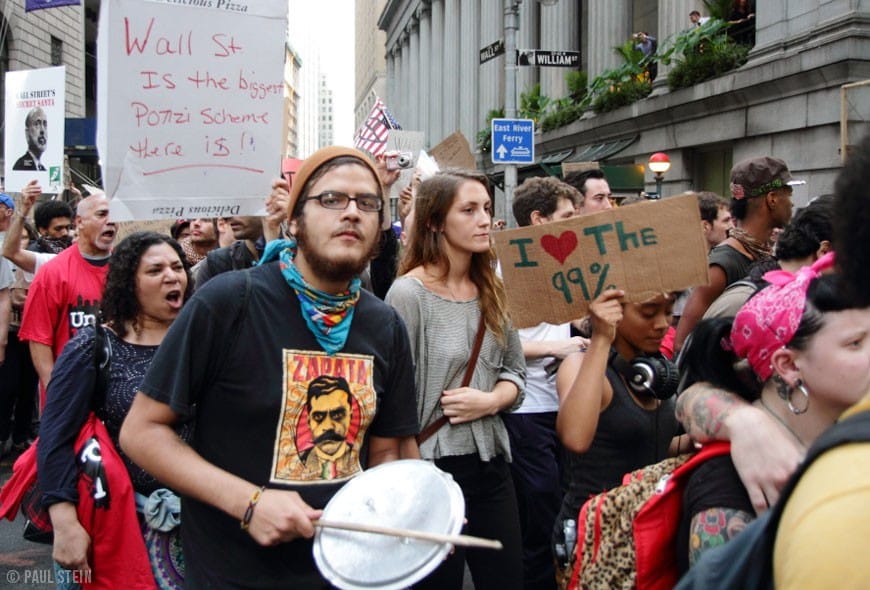A political op-ed
You’re probably not old enough to remember Barry Goldwater’s presidential race, in 1964. But it’s a shining example of the constant force of populism in American politics.
Goldwater was the Republican nominee for the 1964 election, running against incumbent Democrat Lyndon B. Johnson. Before his presidential bid, he was a senator for Arizona. Although Goldwater lost the election in a landslide, the effects of his presidential campaign can be seen today, especially in one candidate in particular.
See, Goldwater was a populist, and like all good populists he played on voters’ fears, hopes, and emotions.
One paper, The Chicago Defender, had this to say about his populist undertones:
“[Goldwater] is in a frantic search for an issue that can stir the voter to an emotional pitch. He tries to frighten the people into believing the country is not in safe hands.”
Goldwater was later described as:
“…the most diabolical force that has ever captured the leadership of the Republican Party. After 108 years of exhortation to freedom, liberty, and justice, the GOP now becomes the label under which Fascism is oozed into the mainstream of American politics.”
Goldwater isn’t the only presidential candidate to be labeled a fascist. And his presidential race isn’t the only time populism has been injected into the American mind. This election has seen the rise of not one, but two populist figures. The unfortunate thing is this isn’t unique. More often than not, populism is a regular facet of American politics.
What is Populism?
Populism in its most basic form is appealing to the hopes and fears of the general populace with focus on fighting the status quo or establishment.
When politicians do it, its focus is on pandering to the issues and fears that the majority of voters identify with.
When it’s a grassroots movement, the focus is on attacking the establishment and any standards that have been pushed on the populace by them.
Populism is usually used as a slur against politicians who pander to the public with unrealistic promises and emotional rhetoric.
This Isn’t the First Time Populism Has Reared Its Head
“The danger of the Republican party being taken over by the lily-white-ist conservatives is more serious than many people realize.” Jackie Robinson, August 1963: in response to Barry Goldwater’s presidential campaign
I already mentioned Goldwater’s failed populist presidential campaign in the 60s. But I’d be remiss if I didn’t mention a few of America’s prominent populist figures and movements.
The People’s Party: prominent from 1892 to 1896, when it merged into the Democrat party, The People’s Party was a left wing agrarian movement. They were critical of capitalism, particularly railroads and banks, consisted mostly of angry farmers from the West and South, and tended to side with the labor movement.
The Progressive Party: created after a split between Theodore Roosevelt and William Howard Taft in the Republican Party, in 1912. The party’s platform focused on the middle class worker, including farm relief, eight hour workday, and regulating industries.
George Corley Wallace, Jr.: governor of Alabama from 1963–1967, 1971–1979 and 1983–1987, he also ran for president four times (1964, 1968, 1972, and 1976). He was a Southern populist and segregationist (later renounced segregation). His message was one of racial prejudice, authoritarianism, and powerlessness of the American people. He was also a master of television and exploited problems instead of fixing them. He never won an election, but got a sizable amount of support.
The Tea Party: thanks to tapping into the Antifederalist movement of the 1780s, a reliance on patriotic symbols, and a dislike of the GOP establishment, the group garnered a sizable amount of support. The momentum culminating in numerous wins for them in local, state, and federal elections.
The Occupy Movement: like the Tea Party, they taped into the same anti-establishment message, this time directed against banks and the wealthy. Their rhetoric, the most famous being “We are the 99%” pitted the masses of people against a few elites that they saw as responsible for economic ills.
Trump & Sanders: Two Sides of the Same Populist Coin
Analyzing the 2016 presidential candidates, Trump and Sanders standout as the most populist-driven candidates.
For Sanders, it’s his Occupy-movement approach to dealing with student debt, banks, and Wall Street that identifies him as a populist. Addressing concerns that many young Americans worry about the most; college tuition and debt. He’s very much an anti-establishment candidate, all the while embracing language that was once off limits.
Trump isn’t that different. His rhetoric takes advantage of the right’s frustrated attitude toward the GOP, political correctness, and what they’ve seen as a cultural war propagated by Obama. They see Obama’s foreign policy as weak, and his domestic handling inept, or destructive at the worst. Trump is also anti-establishment.
While Sanders focuses on the optimism of many democrats (both young and old), Trump focuses on the anger of many republicans.
Both sides have felt left behind, ignored, and taken advantage of by the establishment. Trump and Sanders are a response to that. Whether they’ll come through on their promises is to be seen.
What’s to Blame for Today’s Rise of Populism?
You could point to two preceding movements as the foundation for this election’s populist rise.
The Occupy Movement and the Tea Party were both populist at their core. You could make a case that Sanders and Trump are at least partially a product of those movements.
But placing the blame solely on two political movements is too shallow of an explanation.
This rise of populism goes beyond political parties. It’s a sign of a system that’s let Americans down repeatedly, either because of broken promises, confrontation, or apathy. Regardless the reason, populism is a response to an alienated populace.
The rise of populism is a sign that our government is failing at the duties Americans expect of it.

